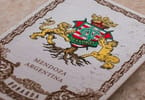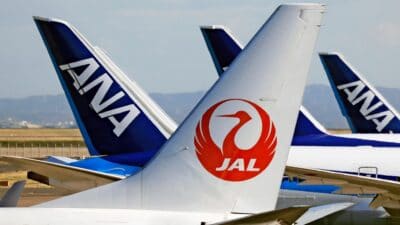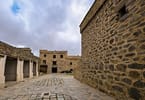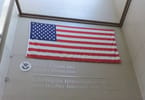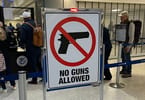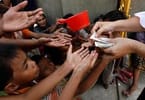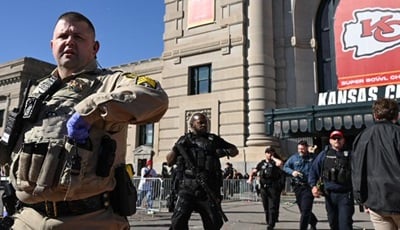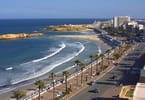Last November, George Gaiti opened a souvenir shop, Mega Gift Shop, at the far end of the Nairobi National Park compound. It was also visible to the drivers on the busy Langata Road.
His business model was to offer both domestic and international visitors a place to relax and enjoy Kenya’s natural heritage on the veranda while sipping coffee or tea.
Catering to everyone from the children with Sh10 to adults with more than Sh10,000 to spend, the business was looking up especially in the first month and early December.
“We were expecting a boom this year, instead we got the shock of our lives,” says Mr Gaiti referring to the post-election violence.
Mr Gaiti was expecting a good return for his investment in January to pay for the construction and loans he had taken to start the business.
So far, he has already laid-off six employees as a result of business disruptions that followed the December elections.
The food has become expensive especially potatoes used to prepare chips a favourite for children visiting the park on the weekends.
Now, the Mega Gift Shop, like most businesses dependant on the tourism sector, faces a bleak future.
It is estimated that 80 per cent of foreign tourists left the country as violence rocked major towns and so did investors.
Gaiti was counting on a forex bureau investor who wanted to rent part of the premises. He too left.
With his business depending on visitors to the Nairobi Safari Walk and Animal Orphanage in Lang’ata, Mr Gaiti’s business is a test case of the economic disruption most businesses are going through. They too are suffering major losses.
Data from the same period last year now shows that domestic and international visitors to the orphanage has dropped by 38 per cent while the Safari Walk has witnessed a 61 per cent drop. The Nairobi National Park visits have dropped by 45 per cent.
The parks and reserves in the rest of the country have also suffered a big blow, especially those in the Western and Rift Valley areas. At one point, Lake Nakuru National Park recorded an income of Sh2,000 when it normally brings in over Sh1 million daily.
The violence has not only dented Kenya Wildlife Service’s aggressive marketing drive that saw it rake in Sh2 billion profit last year but has also damaged businesses that rely on the visitors.
The Rangers Restaurant at Nairobi National Park has lost 30 to 35 per cent of its business. It was reopened in May 2007 after a long court battle that lasted one and half years between the KWS and the previous tenant. Under new management, it was ready to enter fully into the tourism market this year.
During the high tourist season, touring companies would reserve tables for their clients to have lunch before or after their game drives.
In the plans for the year, the restaurant wanted to introduce “Bush Breakfast” for the tourists who arrived early in the morning. They would have been picked up from the airport and using the East Gate of the park on Mombasa Road, they would have the opportunity of viewing wildlife and after that have breakfast served at one of the picnic sites in the park.
“We wanted them to see what Kenya had to offer, but that plan has been postponed,” says Mr Christopher Kirwa, the manager.
Unlike Mr Gaiti, the restaurant did not have to lay-off any employee, but they are not taking on casuals as yet. The 60 permanent staff help in serving the corporate events and the locals, who have become the backbone of the business.
It is a very popular place during the weekends for families and at night for the lovebirds. It has no television and the music is kept low to avoid distraction.
“Many marriage proposals happen here,” says Mr Kirwa cheekily.
Both businesses have refocused their strategies to survive these hard times. Mr Gaiti is looking to increase orders from his website.
He knows that the artists and craftsmen he has been working with for the last fifteen years are depending on him to sell.
Meanwhile, the recent travel bans have forced the Kenya Wildlife Service (KWS) to make some budget cuts like the modernising of the vehicle fleet. It is has been working tirelessly to get business on track.
According to Wilson Korir, the deputy director of KWS, they will continue with the branding of the establishment while aggressively marketing it through the Kenya Tourism Board (KTB) to let the international tourists know that inside the parks is safe.
bdafrica.com
IHE Ị GA-Ewepụ na edemede a:
- They would have been picked up from the airport and using the East Gate of the park on Mombasa Road, they would have the opportunity of viewing wildlife and after that have breakfast served at one of the picnic sites in the park.
- With his business depending on visitors to the Nairobi Safari Walk and Animal Orphanage in Lang'ata, Mr Gaiti's business is a test case of the economic disruption most businesses are going through.
- Mr Gaiti was expecting a good return for his investment in January to pay for the construction and loans he had taken to start the business.





